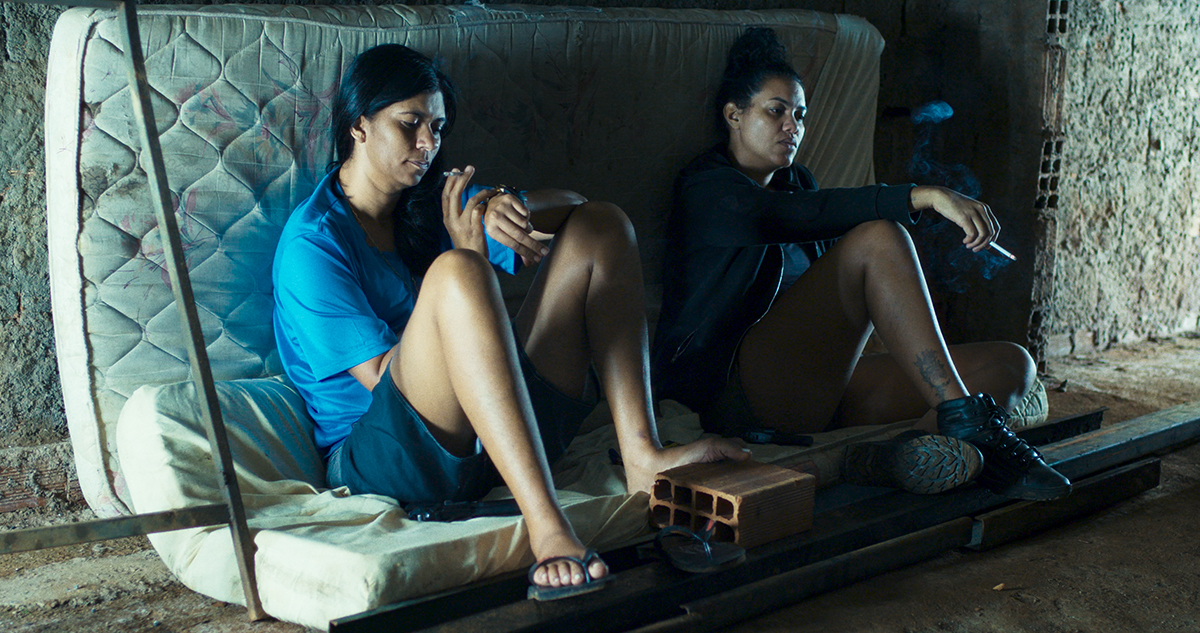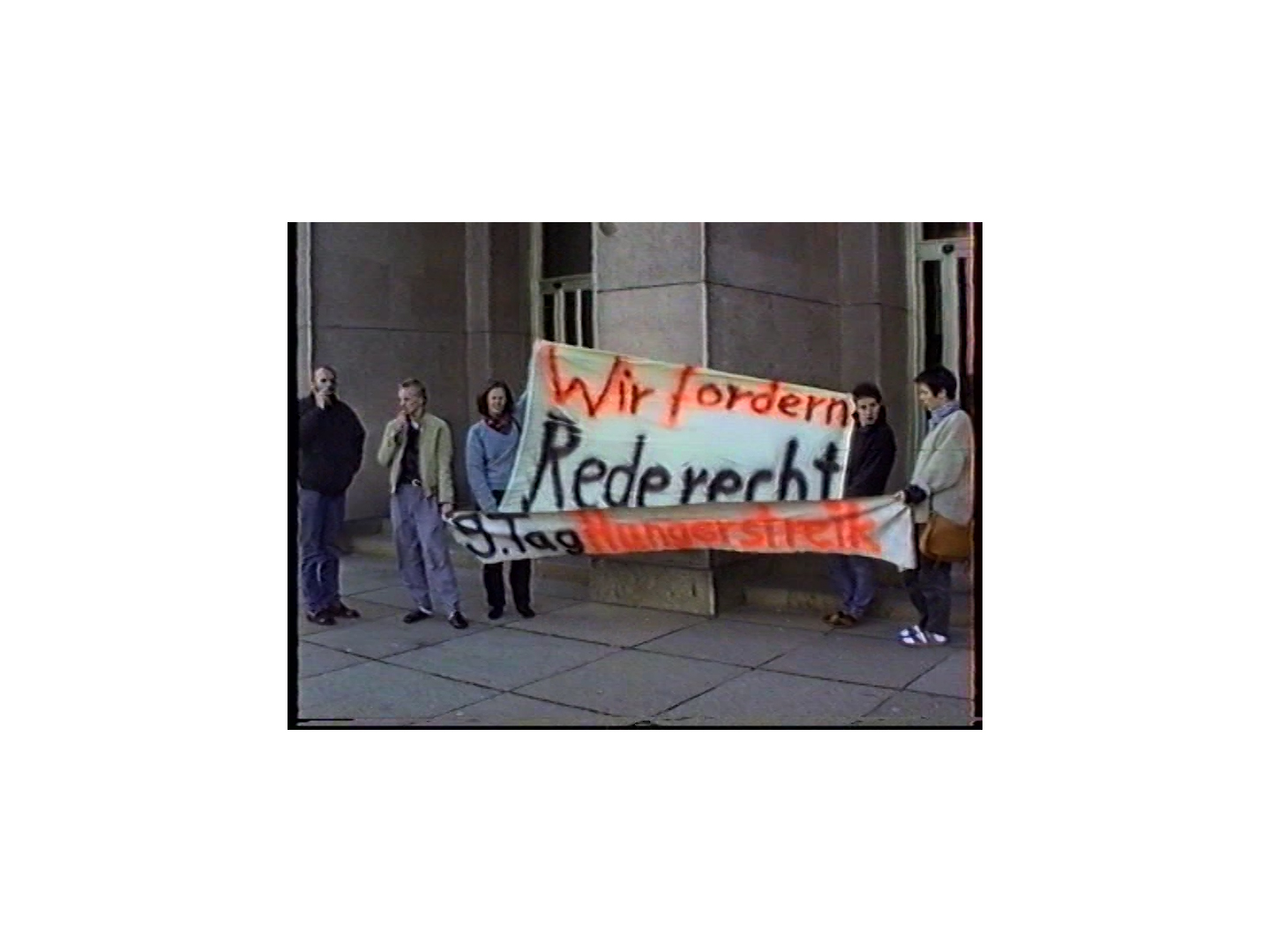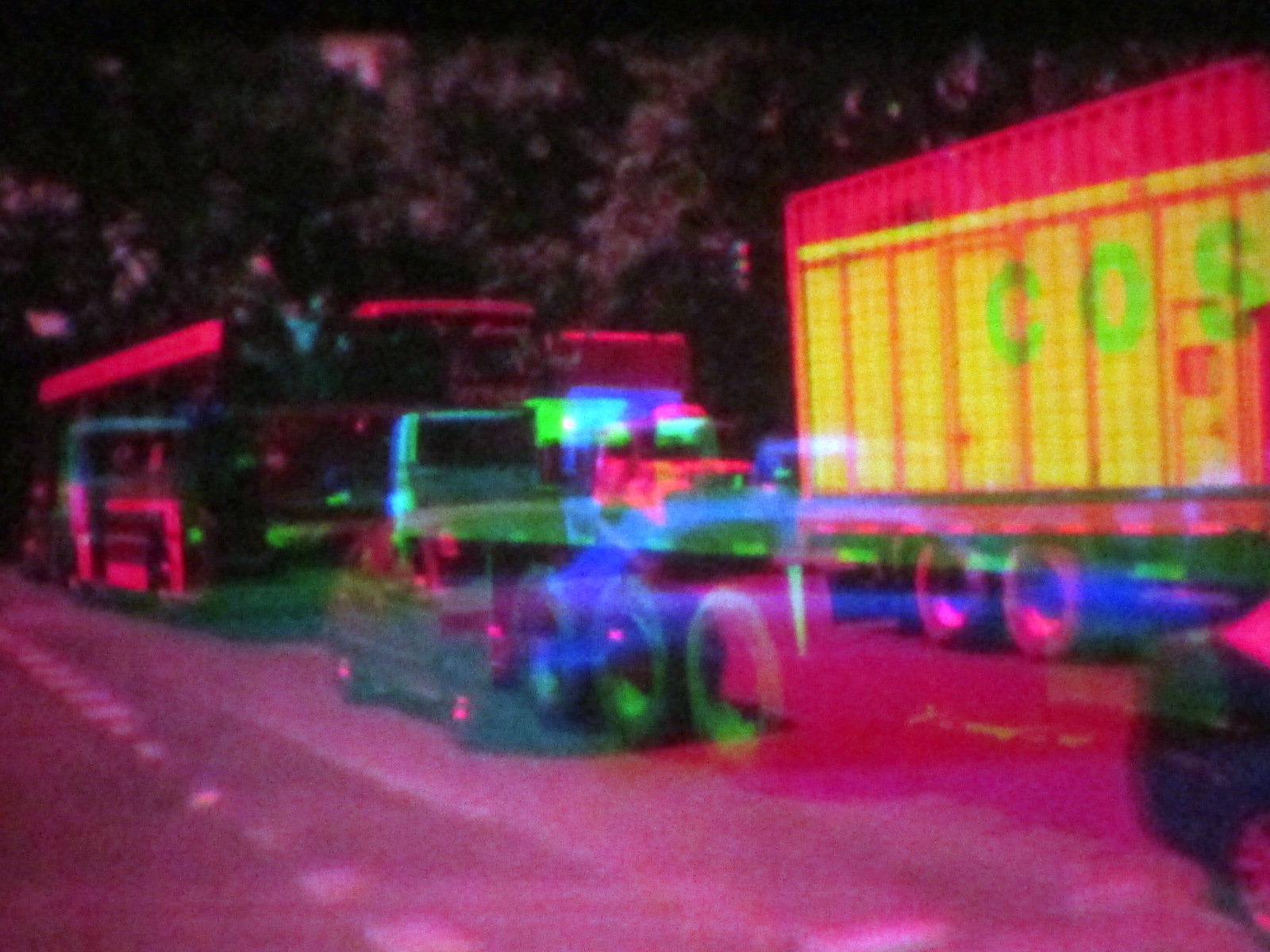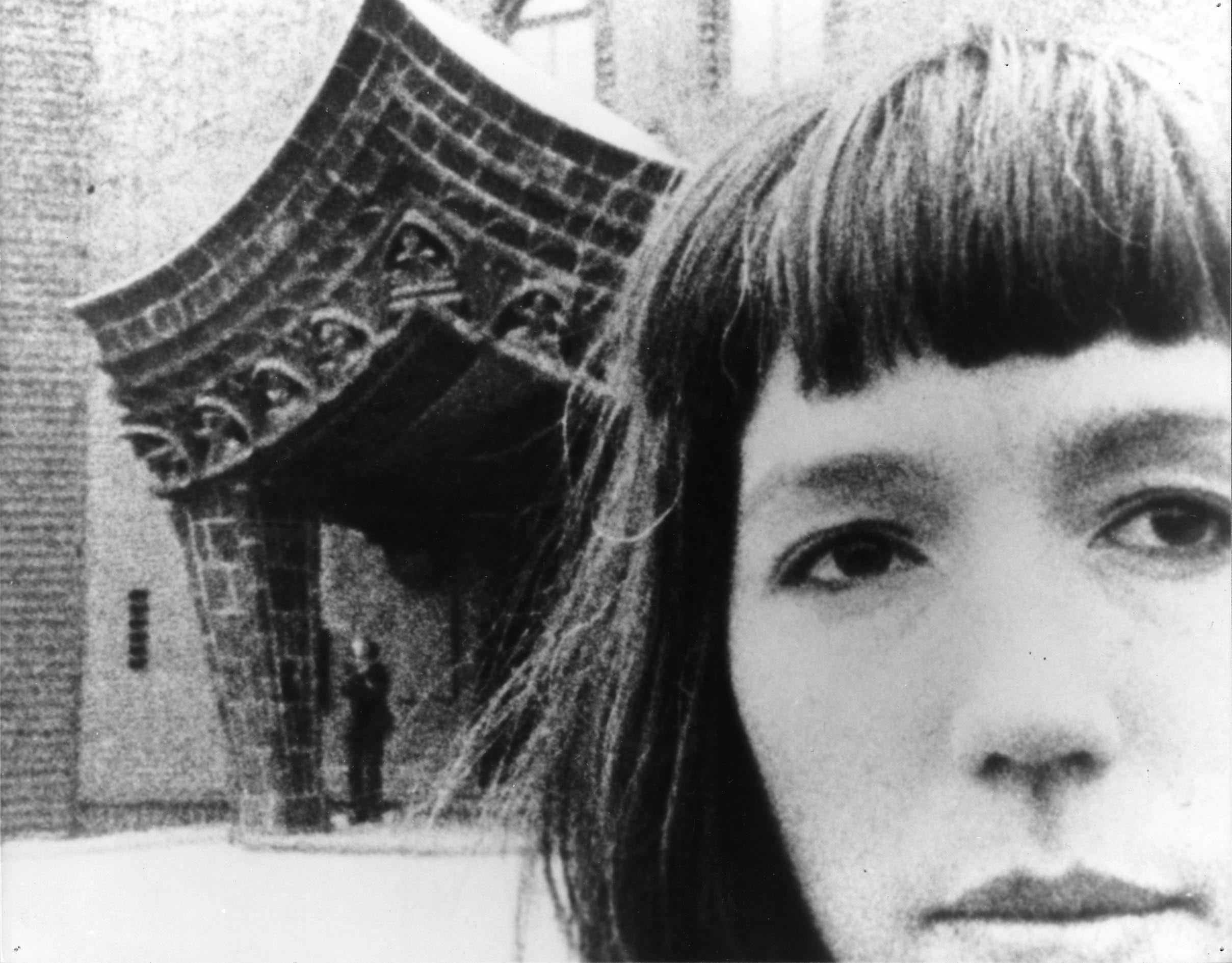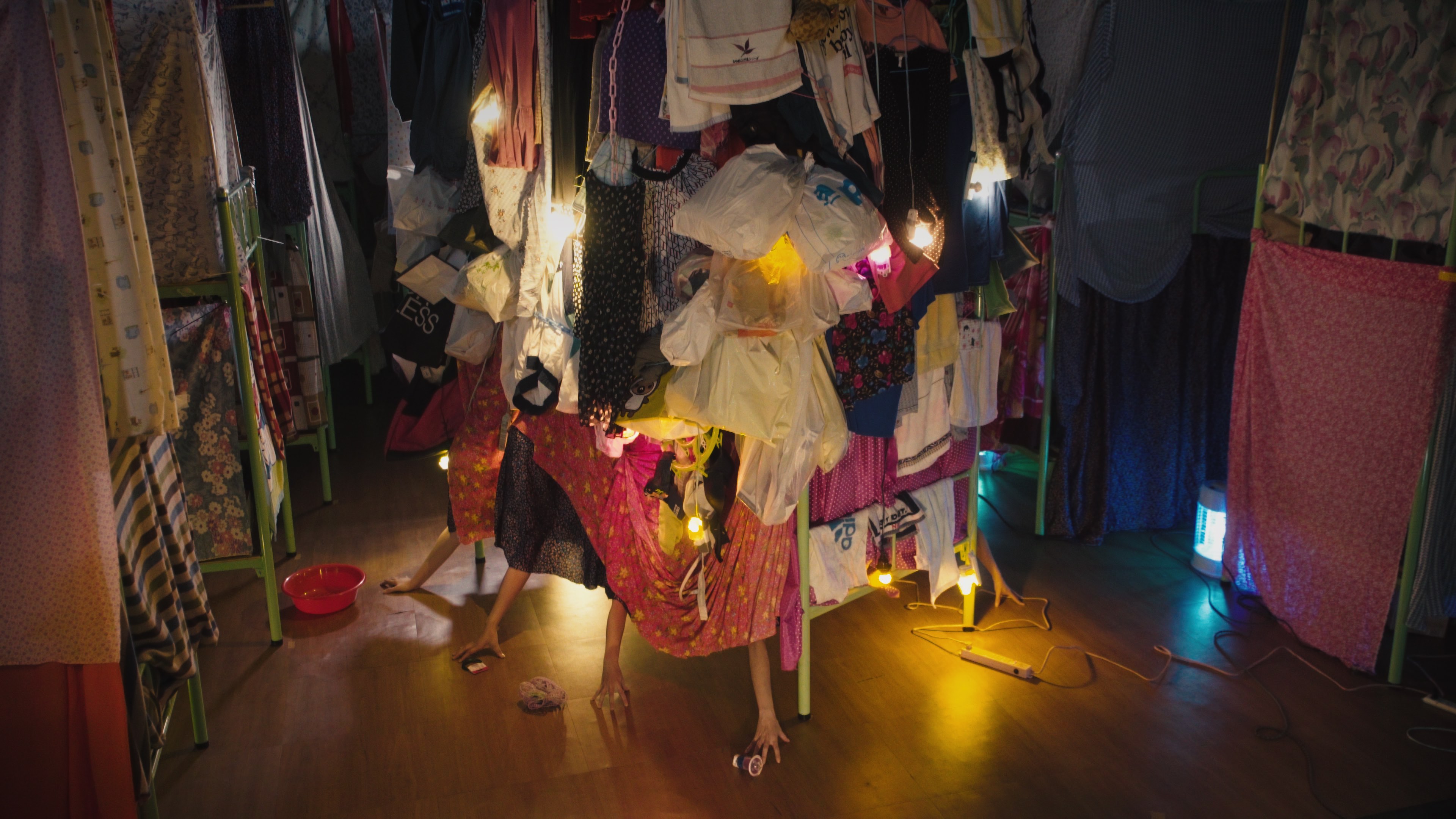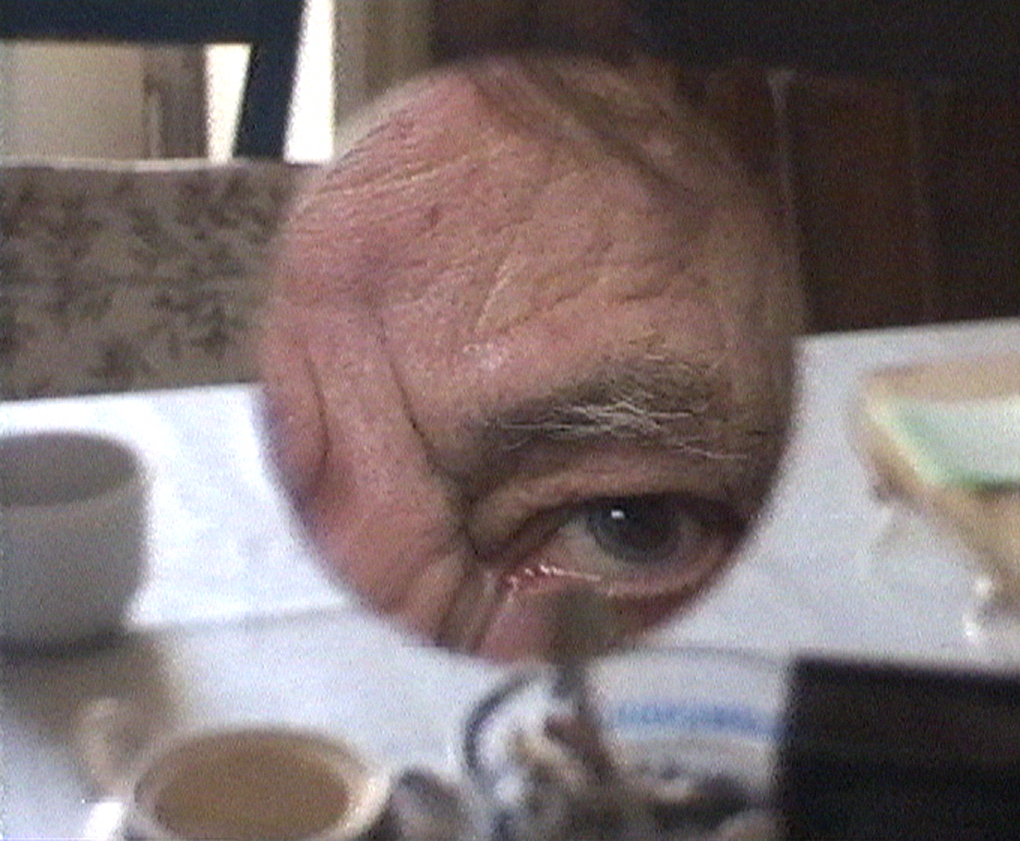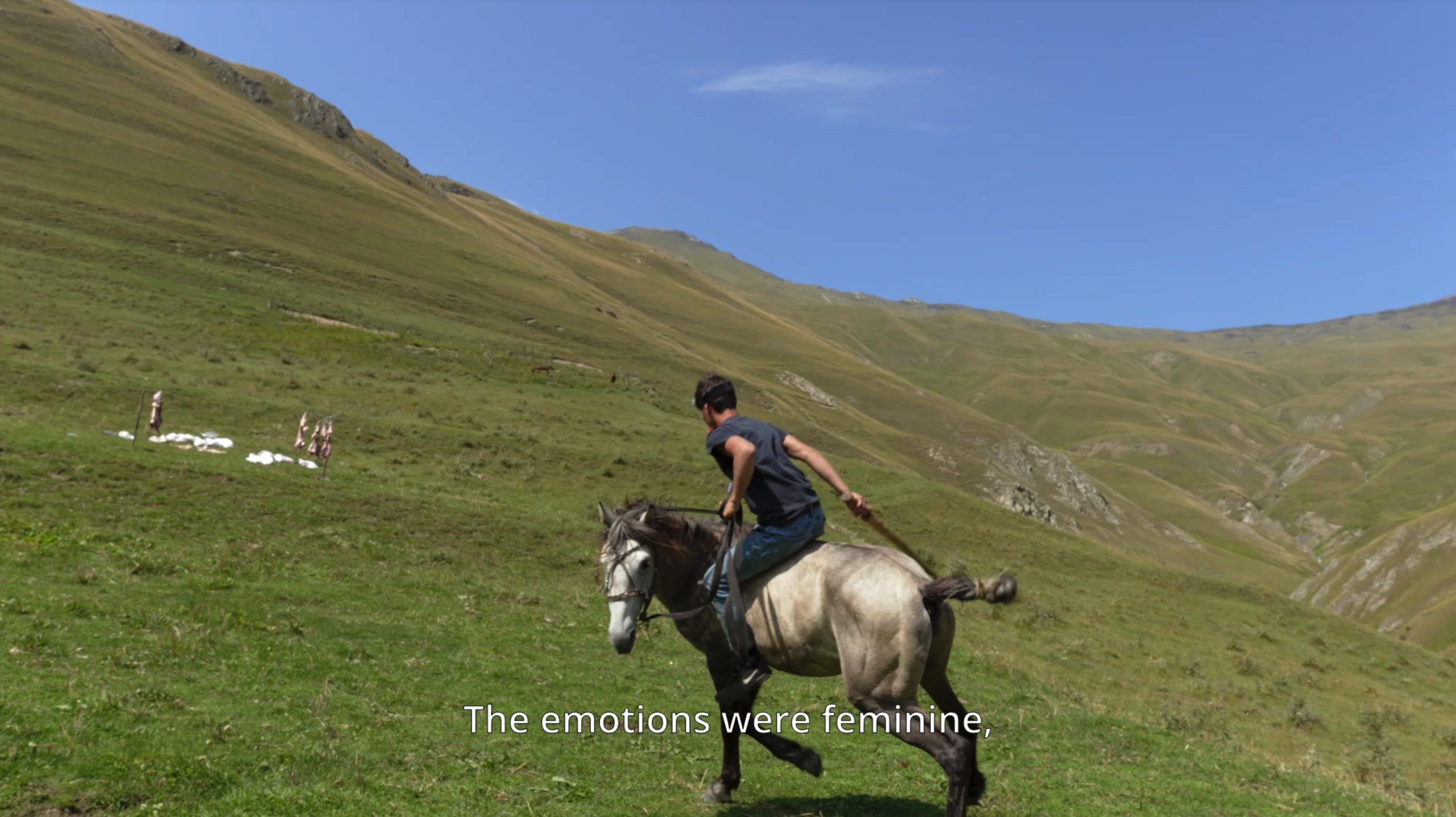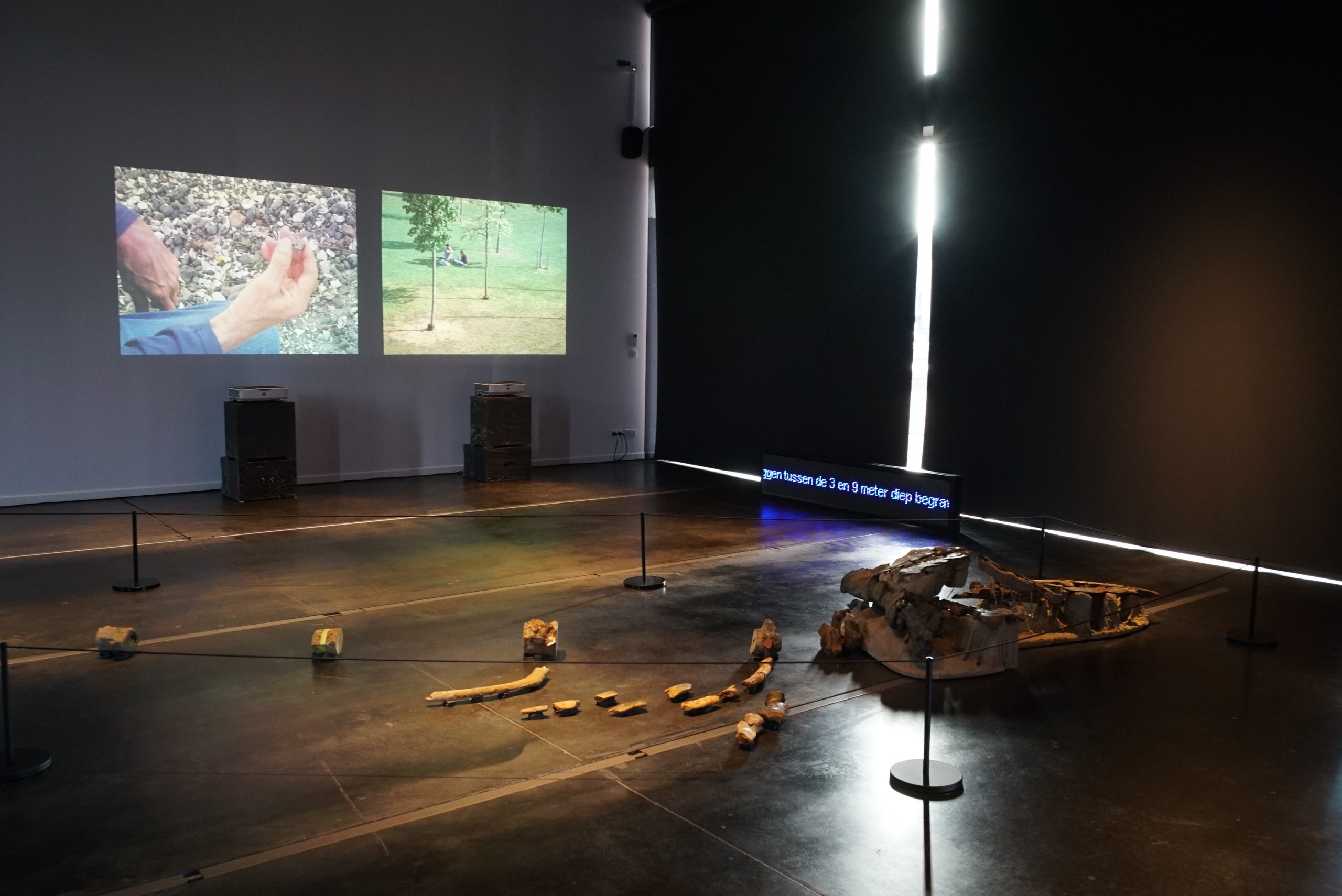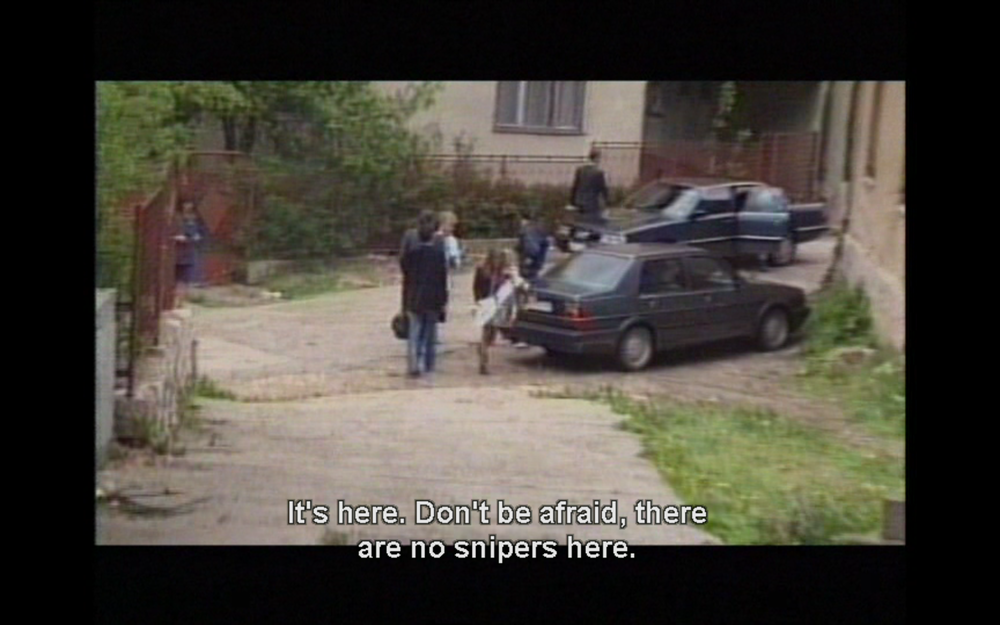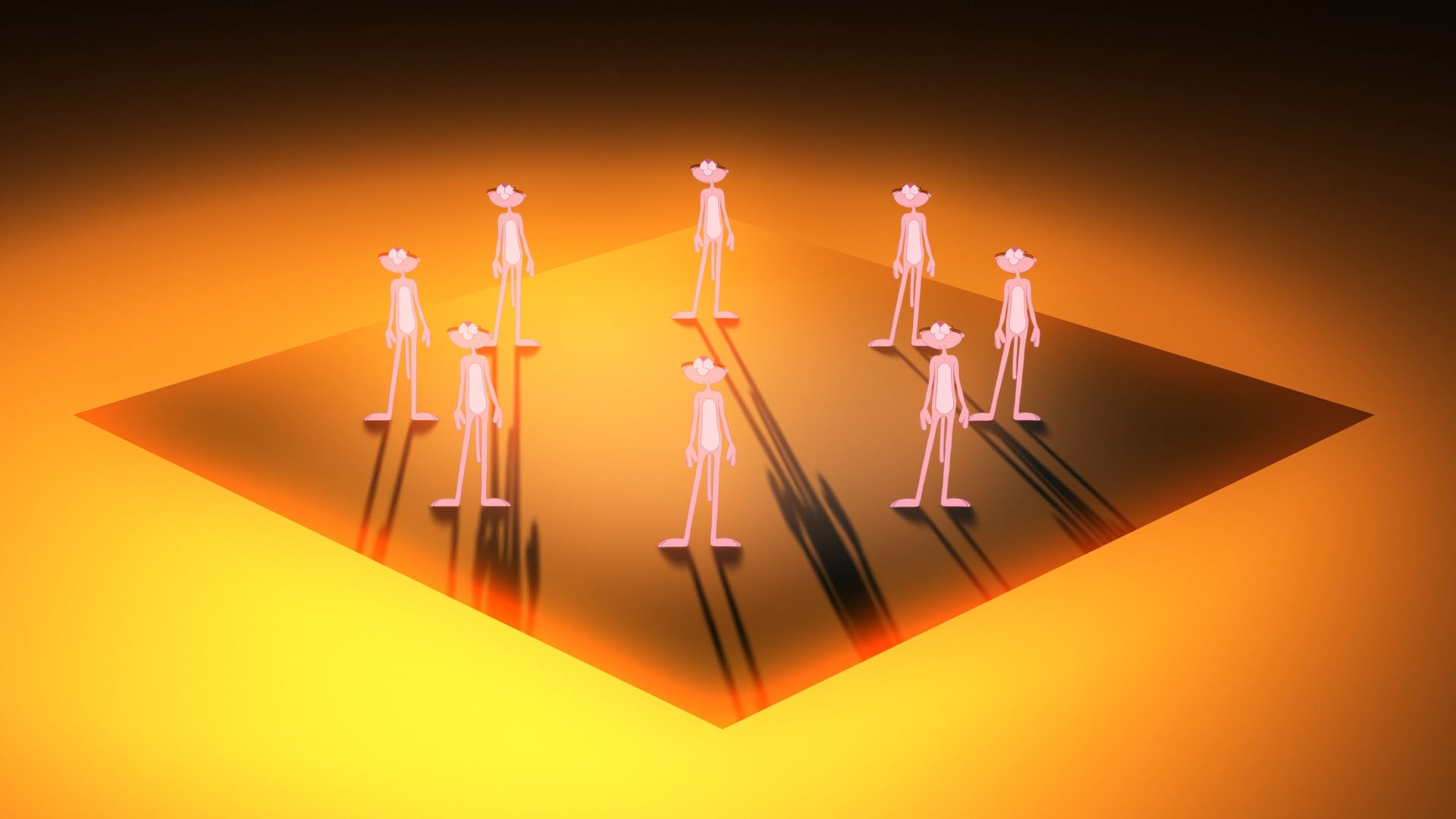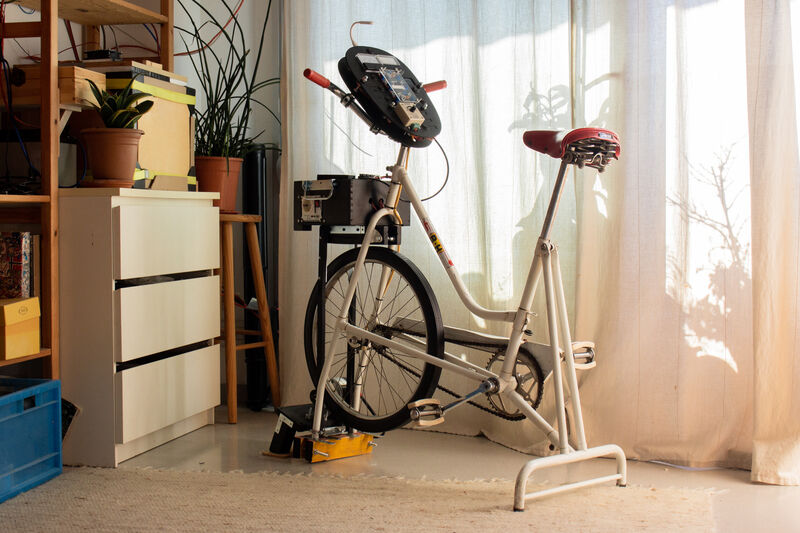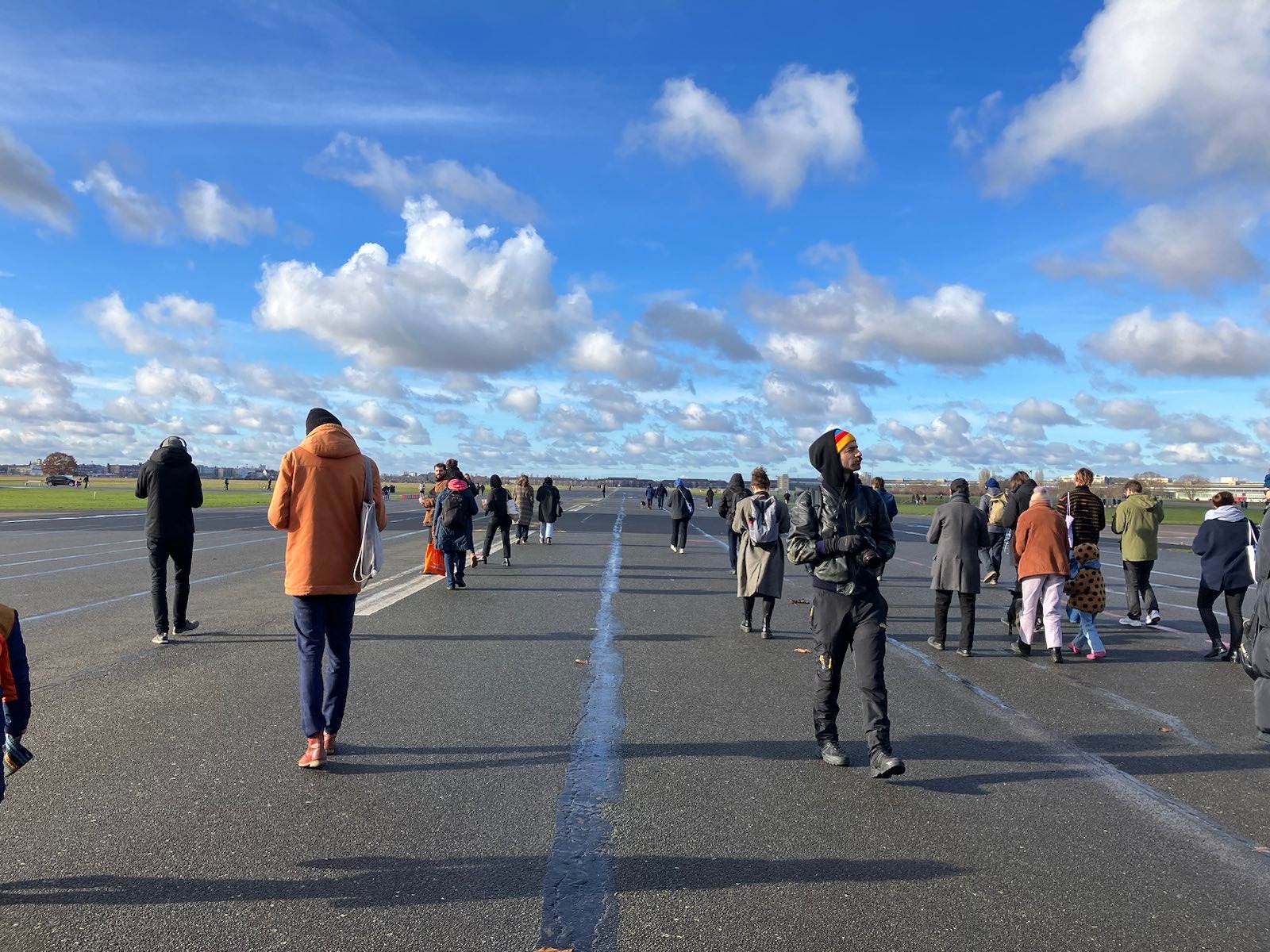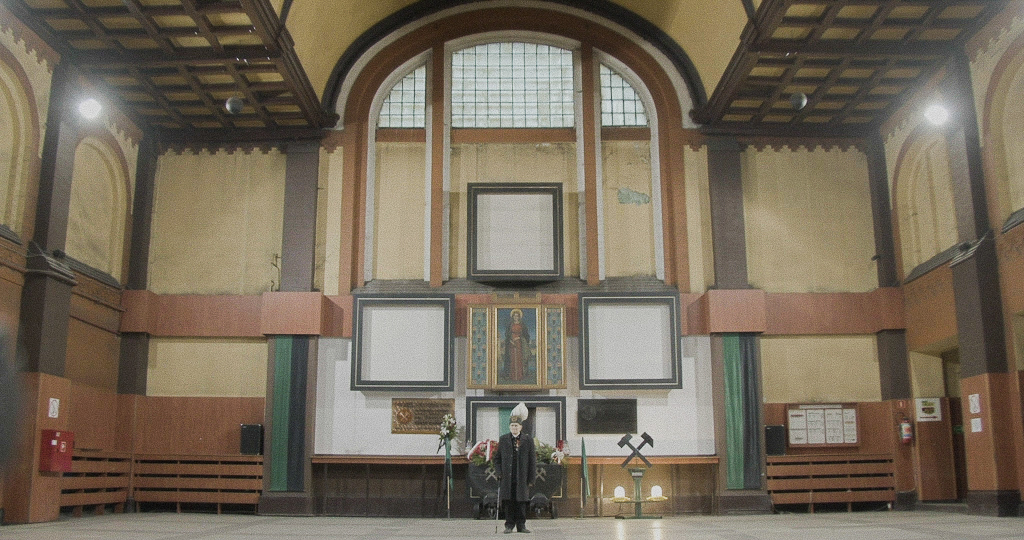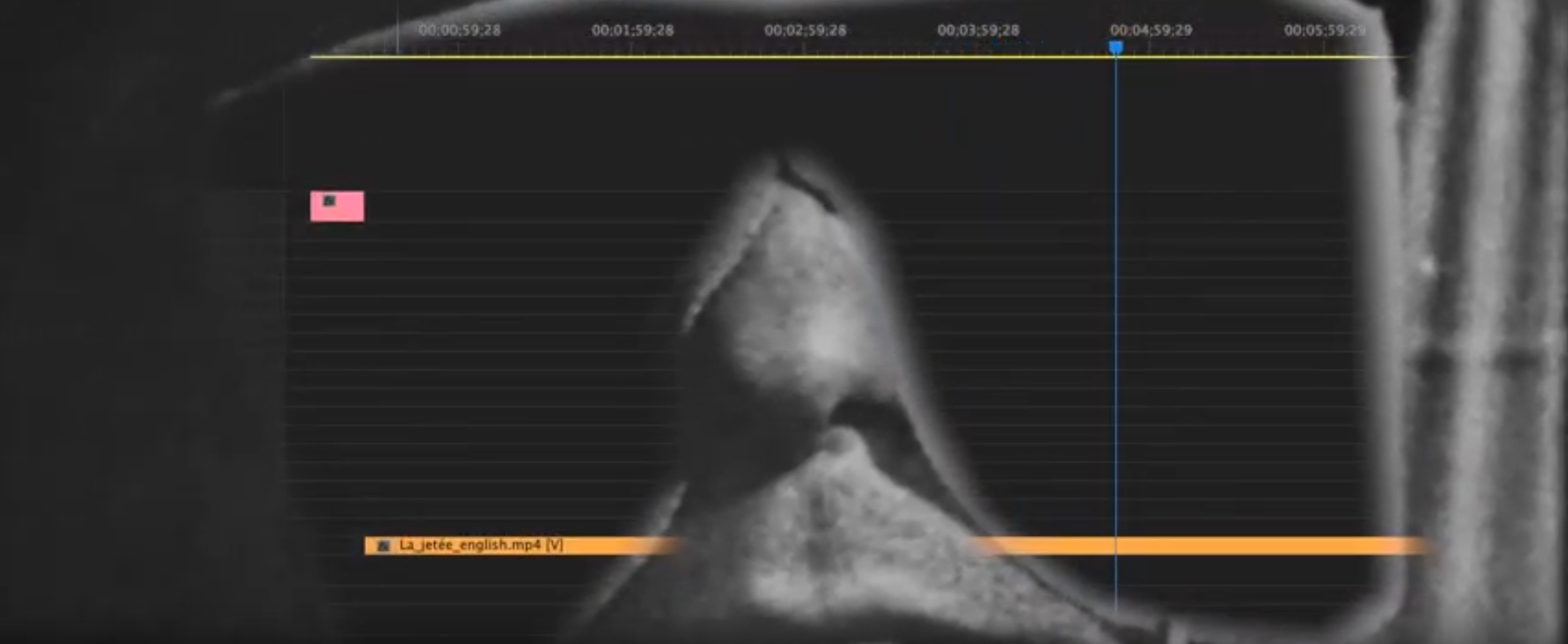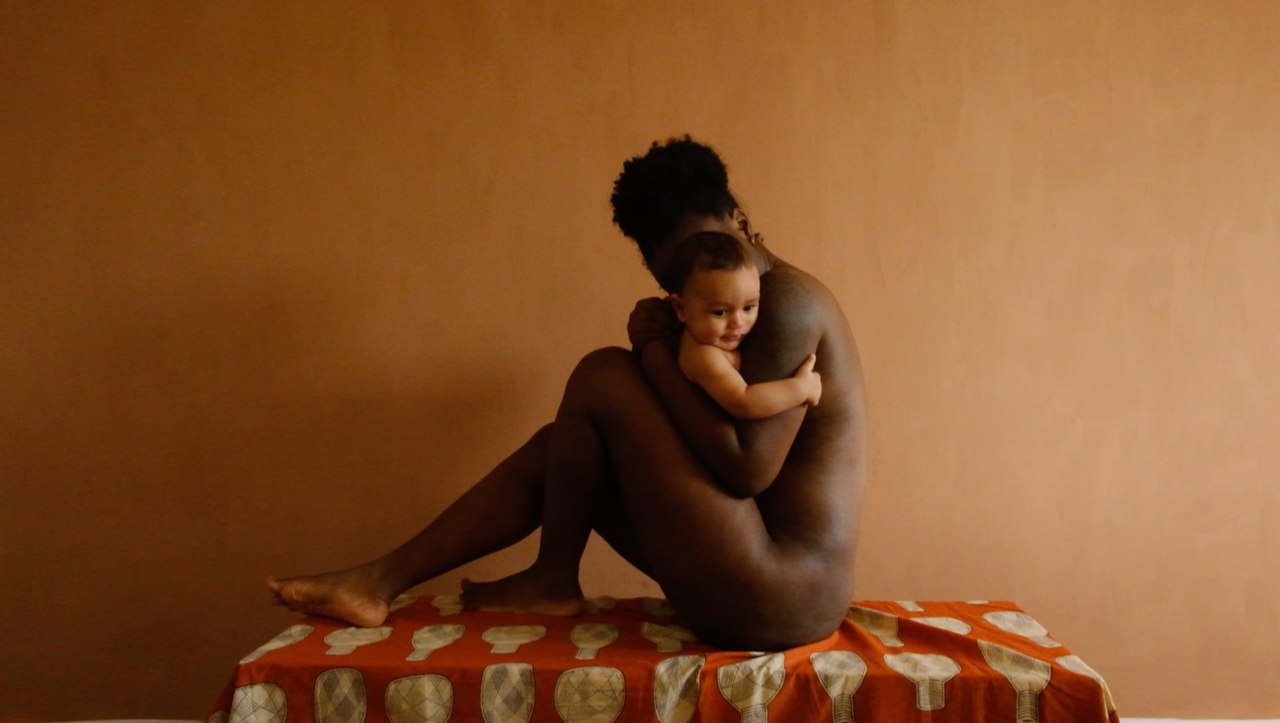Film programme
The film programmes of this year’s EMAF will provide a broad overview of international experimental filmmaking – from current short and feature-length films to historical works, audiovisual performances and expanded cinema.
The short and medium-length films in the International Competition thematically focus on the examination of family relationships, intimacy and domesticity, the traumas of displacement and uprooting, and artistic time travel between the past and the future. How does one experience and overcome the reality of state borders and social divisions? What is made possible by solidarity and resistance? How do our memories live on, how do we imagine something new through technology, dreams and ritual?
The four Feature Films in the programme also convey multi-layered impressions of landscapes in transition, contested geographies and overlapping times. They move through living and cinematic landscapes, observe the changes that modernisation and migration processes cause in rural regions, tell an alternative story of life on Earth, or study the intersections between architecture and ideology.
With Implication. On Documentary Ethics we are continuing a series that started last year with great success. We are inviting four artists from the International Competition to select and discuss films with us that illuminate the topic of documentary ethics in film from different perspectives. The topics include the ethics of (artistic) collaboration, the interfaces between the documentary and the performative, or the representation of closeness, encounters, and intimacy.
Another highlight is the six-part film and performance programme curated by Rachael Rakes on the festival theme Trembling Time. Based on the assumption that the idea of a linear progression of time, which to this day determines our thinking and perception, our economic and political actions, is a construct, and one that potentially threatens our very existence, the works in this programme deal with alternative concepts of time and values.
This year, EMAF honours the artist Angela Melitopoulos as Artist in Focus. Since the mid-1980s, she has been creating videos, installations and sound works, also in cooperation with other artists, theorists and activist networks. EMAF presents a selection of her works, from early experimental and activist videos to recent documentary films. In dialogue with Melitopoulos’ work, there will also be films by other artists.
At the interface of film and performance, EMAF is carrying out a new, multi-year project in cooperation with the artist collective LaborBerlin. Under the title SPECTRAL. Unburdened Recollections, historical and rarely shown expanded cinema works and film performances will be reconstructed and reperformed at the festival. Discussions with the participating artists and curators will address how these ephemeral works of art can be preserved and made available now and in the future. The project SPECTRAL is supported by:
[
Awards and Jury Statements
EMAF AWARD
EMAF Award
Mangosteen by Tulapop Saenjaroen
A surrealist narrative dreamscape that does a masterful job of bringing together archetypes, character, music, and humour. This is clearly the work of a talented director in command of his craft. We are excited to give the EMAF Award to Mangosteen by Tulapop Saenjaroen.
Special Jury Award
If You Don’t Watch the Way You Move by Kevin Jerome Everson
For his subversive portrait of the creative process and the way he puts hip hop culture in dialogue with experimental forms of music and film, we give the Special Jury Award to Kevin Jerome Everson aka The Maestro.
Dialog Award
Dialogue Award
Sight Leak by Peng Zuqiang
For the sensitive utilisation of the camera tracing a journey through an urban landscape, and for the way the voices perform and comment upon the text. The film contrasts and critiques the western philosophical imaginary with easternt queer realities. We give the Dialogue Award to Sight Leak by Peng Zuqiang.
Special Jury Award
ul-Umra by Gautam Valluri
For the intercontinental triangulation of religion, architecture, and identity, and for its outstanding utilisation of the analogue format, we give the Special Jury Award to ul-Umra by Gautam Valluri.
Media Art Award of the German Filmcritics (VDFK)
EMAF Media Art Award of German Film Critics (VdFK)
Living Room under the Flyover by Karolina Bregula
Living Room under the Flyover, a joint project by Karolina Breguła, Shi-Fen Zhang, Rong-Yu Li and Ya-Qiao Li, impresses with its cinematographically sensitive portrayal of a political protest against housing displacement in Taiwan. In reference to the staging and performance of a precarious housing situation under the highway bridge in Tainan’s railway station district, the film skilfully combines well-composed visual settings that alternate between static photography and subtle momentum. As the film puts the audience in the position of detecting and examining movement or standstill, it is ultimately a reflection of the endurance that finally led to the partial success of the political resistance.
Special Jury Award
Afraid Doesn´t Exist by Anna Zett
The greatest films of this year’s festival were those that presented us with images that seek out new narrative forms, which are in search of original ideas, allowing for a deeper engagement with what is seen and felt. This film addresses the question as to what attitude one can subsequently adopt towards a revolutionary process and whether it is possible to retrospectively become a part of the revolution through the artistic engagement with archival material. It carefully approaches its narrative and continuously strives to find an attitude towards the historical events it observes. The images represent a thought process while at the same time inviting the audience to develop their own attitude to what is happening. Not only its exploration of an almost forgotten part of East German history but also its formal awareness of using archival footage to recount a bygone past make this film a unique experience. Therefore, we are awarding this year’s Special Jury Award to Afraid Doesn´t Exist by Anna Zett.
Exhibition
In “Trembling Time”, various concepts of time and temporality are discussed. While human existence is fundamentally shaped by the categories of space and time, time remains difficult to grasp, define, and penetrate. Time is neither absolute nor objective, but highly malleable in the way humans experience it. How we develop, perceive, measure, deal with, think about, and discuss time, as well as how we change it, depends on social structures and context.
Thus, the abstract, quantitative perception of time that shapes our (work) life and rhythm, only represents a highly limited facet of human experience, one further reinforced by digital technologies today: We leave the past behind and move towards a transformed future, or one waiting to be transformed. At the same time, the linear concept of time contains the narratives of progress that colonial and capitalist societies tell themselves. The linear concept of time served to hierarchically sort groups according to their cultural differences - from progressive to backwards - and thus legitimized colonial interventions with the aim of “civilizing” them.
The participating artists and artist groups turn to alternative dimensions of time beyond the understanding of linear or humanly felt time, or try to think about time and temporality in the context of decolonial artistic practices. Using experiences and archival material, historical events, as well as linguistics, memes, or Chinese folk tales, using glacier ice, radioactive decay processes, ginkgo trees, or whale fossils, they explore the multi-layered nature of time.
The temporalities of geological and planetary phenomena -Deep Time- extend far beyond the time scale of humans or even the human species as such. Faced with an escalating climate crisis or the existence of radioactive waste, we are forced to think about time on a completely different scale. The artists in Trembling Time approach such questions with documentary means, using methods of storytelling, video, sound and composition, sculpture, animation, VR or game design.
While some of the works shown deal with different temporalities beyond human perception, measurement, and existence, other artworks address the relationships between past, present, and future. They also focus on experimental languages of cultural production and dissemination as well as alternative histories and spaces of possibility that can be developed through engagement with archives.
The title Trembling Time also refers to the era in which we currently find ourselves, shaken by the war of aggression in Ukraine. In the face of an ongoing war and a time that has come to be described as a “permacrisis,” the question how to imagine possible futures arises.
The current, prevailing understanding of time often tempts us to view events as isolated and limited phenomena, rather than understanding them in their complex and changing nature. The works on display in the exhibition call for a deeper connection to the events that shape our world, encouraging us to formulate equitable and sustainable socio-temporal models and commit to a future that is in line with them.
With works by: Imran Channa, Freefilmers Collective, Thomas Mader, Martin Recker und Paul Hauptmeier, Tang Han, Clarissa Thieme und Nihad Kreševljaković, Eva van Tongeren, Clea T. Waite, Weronika Wysock
Talks
As a global generalised crisis continues to prevail, a feeling of running ‘out of time’ becomes more and more dominant. What happens when the point of no return is reached? How can futures still be imagined and collectively built? Can next generations make up for the time lost by previous ones?
Living in ruins is not easy nor desirable. In times of environmental and sociopolitical damage, ruins can be meant literally or metaphorically. In both cases, though, they connect to the imaginary of limitless and unquestionable progress, and they are the outcome of an accelerated rhythm calling for efficiency, optimisation, and economic prosperity. Ruins bear the marks of the brutality from exploitation and extraction. At the same time, however, they hold the potential to see through their cracks and gaps, and to create the ground for livable lives.
Wishing to disconnect time from linearity, productivity and progress, the talks of EMAF 2023 explore time with regard to the temporalities and rhythms of different worlds. Paradigms of degrowth come to the foreground shedding light to the possibilities and challenges of scaling down human activity and its impact. The ideas, proposals and projects discussed underline the urge to respect the limits of the planet and to acknowledge dependencies on a social and ecological level.
Within this context, a particular emphasis is placed on the role of technology looking into its controversies in making, taking, or wasting time and in shaping futures. Examples of low-tech, traditional or community knowledge are introduced as models for a more sustainable way of living. Initiatives and institutions that aim and advocate for behavioural and systemic change are discussed paying attention to their programme with regard to the use of energy, resources and time.
Although turning back time is not possible, the potential to let go of the imaginary of progress, to slow down and to change pace is still a viable option. The speakers of EMAF 2023 embrace such possibilities examining how it can happen from individual to collective and from community to society.
Campus
This year’s EMAF Campus is being organised by art academy classes from Leipzig, Munich, and Mainz as well as by Osnabrück University and Osnabrück University of Applied Sciences. In exhibitions, film screenings, and workshops developed specifically for the festival, they will present current projects – from video and audio installations to kinetic objects and collectively created films.
Under the title Patching Networks, the class of the Academy of Fine Arts Munich will address different natural and social ecologies – the fragile connections between bodies and spaces, subject and community.
In Sorry, I Have to Leave, the group from the Academy of Visual Arts Leipzig explores movements of time and moments of transition as they become visible in places of remembrance and (re)preservation, as well as in gestures of solidarity and resistance.
The film class of the Academy of Fine Arts Mainz is developing a new, collective film project for the Filmtheater Hasetor. The Best Remaining Seats not only activates this particular cinema and its history, but also explores what cinema (today) means as a shared realm of experience.
Students from Osnabrück University, the University of Applied Sciences Osnabrück and the School of Music and Art are participating with video projects, workshops, and installations. Whether they are exploring artistic immersion as “artronauts” in times of change and progression, inventing new solutions for dealing with digital media, or whether they are exploring local green spaces as a way of preserving hope for a liveable future - the students of the three institutions are presenting a wide variety of works that will be shown and exhibited at various locations in Osnabrück’s city centre.
